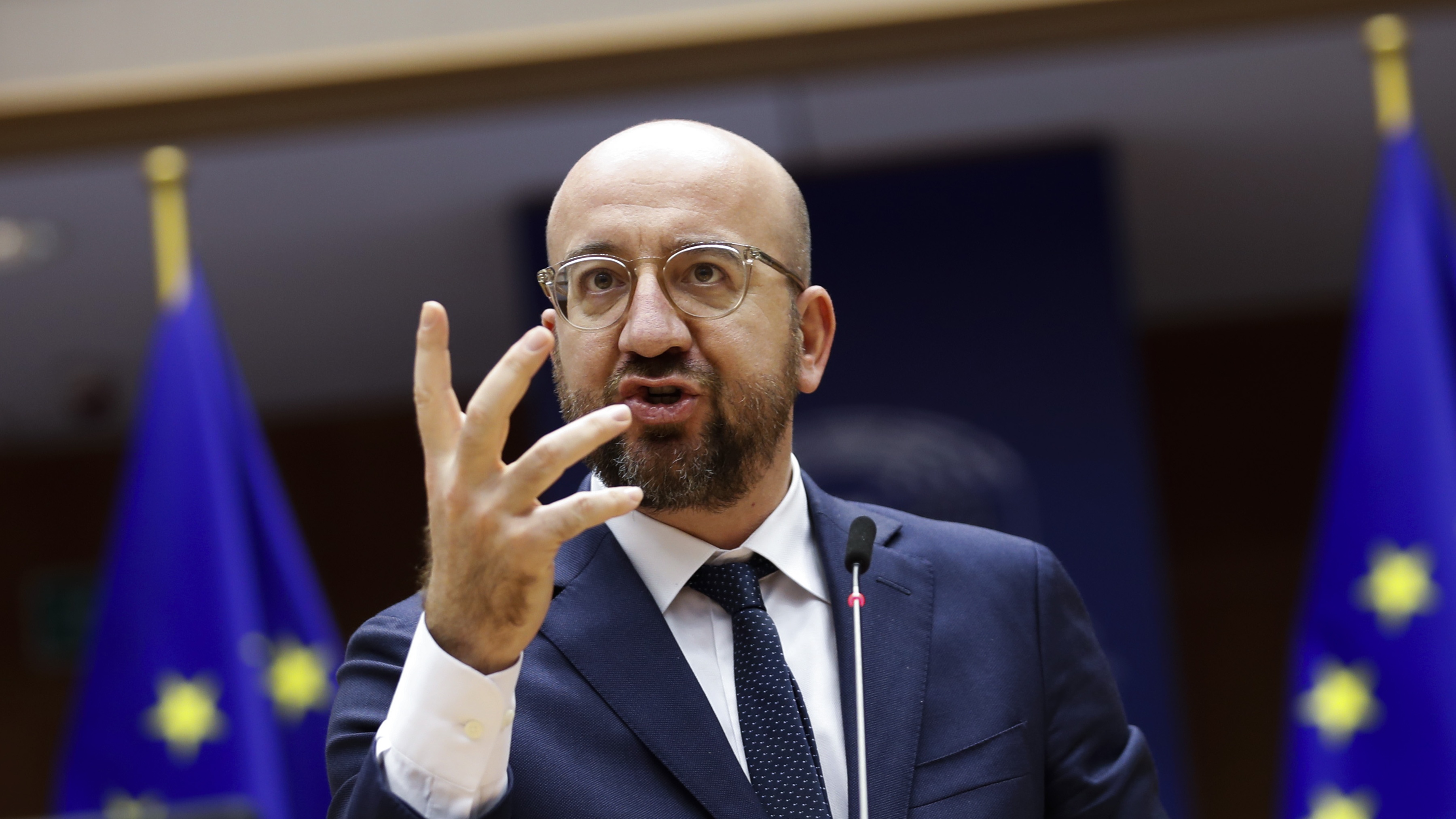UK rejects EU claim it banned vaccine exports
Dominic Raab moves to ‘set the record straight’ after accusation by European Council president

A free daily email with the biggest news stories of the day – and the best features from TheWeek.com
You are now subscribed
Your newsletter sign-up was successful
After the UK and EU narrowly avoided a vaccine war in late January, a fresh row has broken out over claims that the UK has banned all Covid vaccine exports.
Foreign Secretary Dominic Raab has written to President of the European Council Charles Michel saying claims that the UK had “imposed an outright ban on the export of vaccines or vaccine components” is “completely false”, the BBC reports.
Michel had made the claim in a newsletter sent to 20,000 subscribers across the bloc, but Raab said he wanted to “set the record straight”, Politico adds.
The Week
Escape your echo chamber. Get the facts behind the news, plus analysis from multiple perspectives.

Sign up for The Week's Free Newsletters
From our morning news briefing to a weekly Good News Newsletter, get the best of The Week delivered directly to your inbox.
From our morning news briefing to a weekly Good News Newsletter, get the best of The Week delivered directly to your inbox.
A person familiar with the letter told the news site that Raab said: "The UK government has not blocked the export of a single Covid-19 vaccine or vaccine components. Any references to a UK export ban or any restrictions on vaccines are completely false.”
Responding to Raab’s denial, Michel “doubled down on his earlier criticism”, The Telegraph reports. Michel said there were “different ways” of imposing bans on vaccines, with the paper adding that the EU Council president implied that “while the EU provided vaccines for its citizens and the rest of the world, Britain did not”.
The war of words marks “a fresh escalation of the cross-Channel row over jabs”, with the UK now “expected to summon a representative of the EU's delegation to the UK to discuss the matter”, Politico says. Amid “mounting tensions between the two sides”, a government source told The Telegraph that Michel’s attack was a “distraction exercise” to deflect from the EU’s faltering vaccination campaign.
In late January, the EU threatened to invoke Article 16 of the Brexit withdrawal agreement to impose border checks on vaccines on the island of Ireland amid its slow vaccine rollout. The suggestion triggered “swift” condemnation and a “flurry of calls between UK and EU leaders”, Sky News reported at the time. The EU later U-turned on the plan.
A free daily email with the biggest news stories of the day – and the best features from TheWeek.com
And last week, Italy became the first country to impose an EU export ban on vaccines after blocking a shipment of 250,000 AstraZeneca jabs meant for Australia.
The EU has so far administered 42.13 million vaccines, according to Oxford University tracking, meaning 9.47 per 100 people across the bloc have received at least one jab. The UK has handed out 23.52 million jabs, meaning 34.6 people per 100 have had at least one dose.
Joe Evans is the world news editor at TheWeek.co.uk. He joined the team in 2019 and held roles including deputy news editor and acting news editor before moving into his current position in early 2021. He is a regular panellist on The Week Unwrapped podcast, discussing politics and foreign affairs.
Before joining The Week, he worked as a freelance journalist covering the UK and Ireland for German newspapers and magazines. A series of features on Brexit and the Irish border got him nominated for the Hostwriter Prize in 2019. Prior to settling down in London, he lived and worked in Cambodia, where he ran communications for a non-governmental organisation and worked as a journalist covering Southeast Asia. He has a master’s degree in journalism from City, University of London, and before that studied English Literature at the University of Manchester.